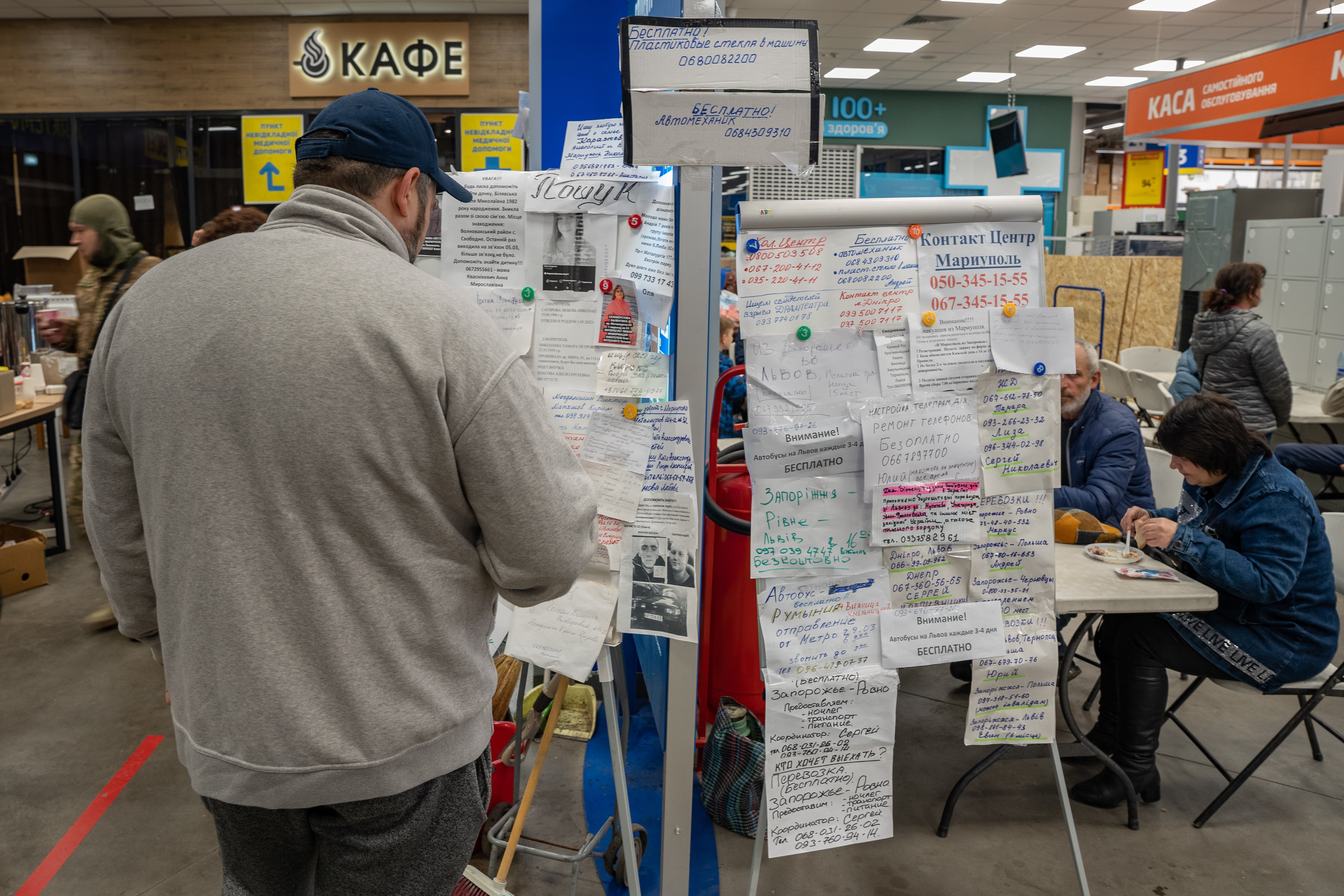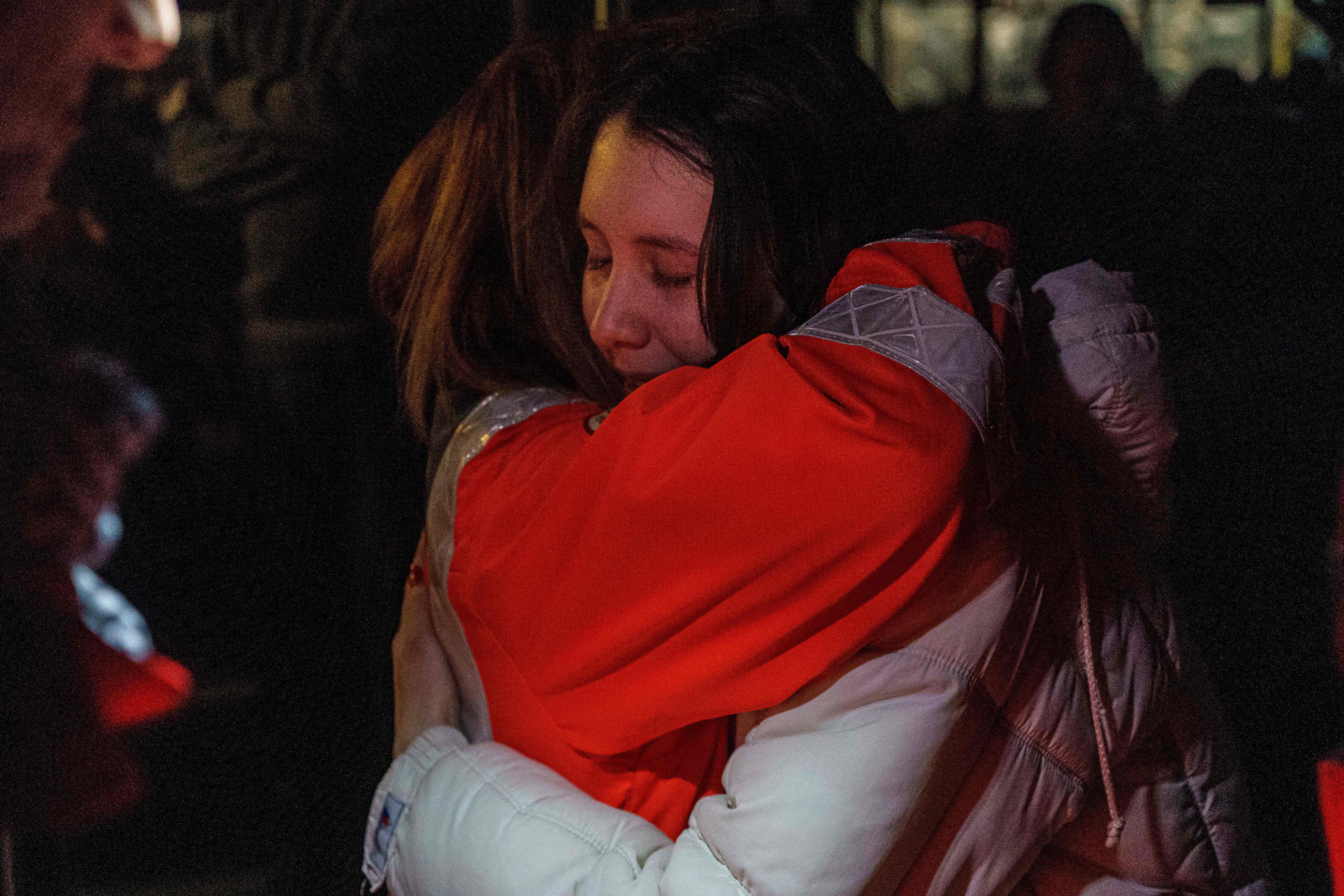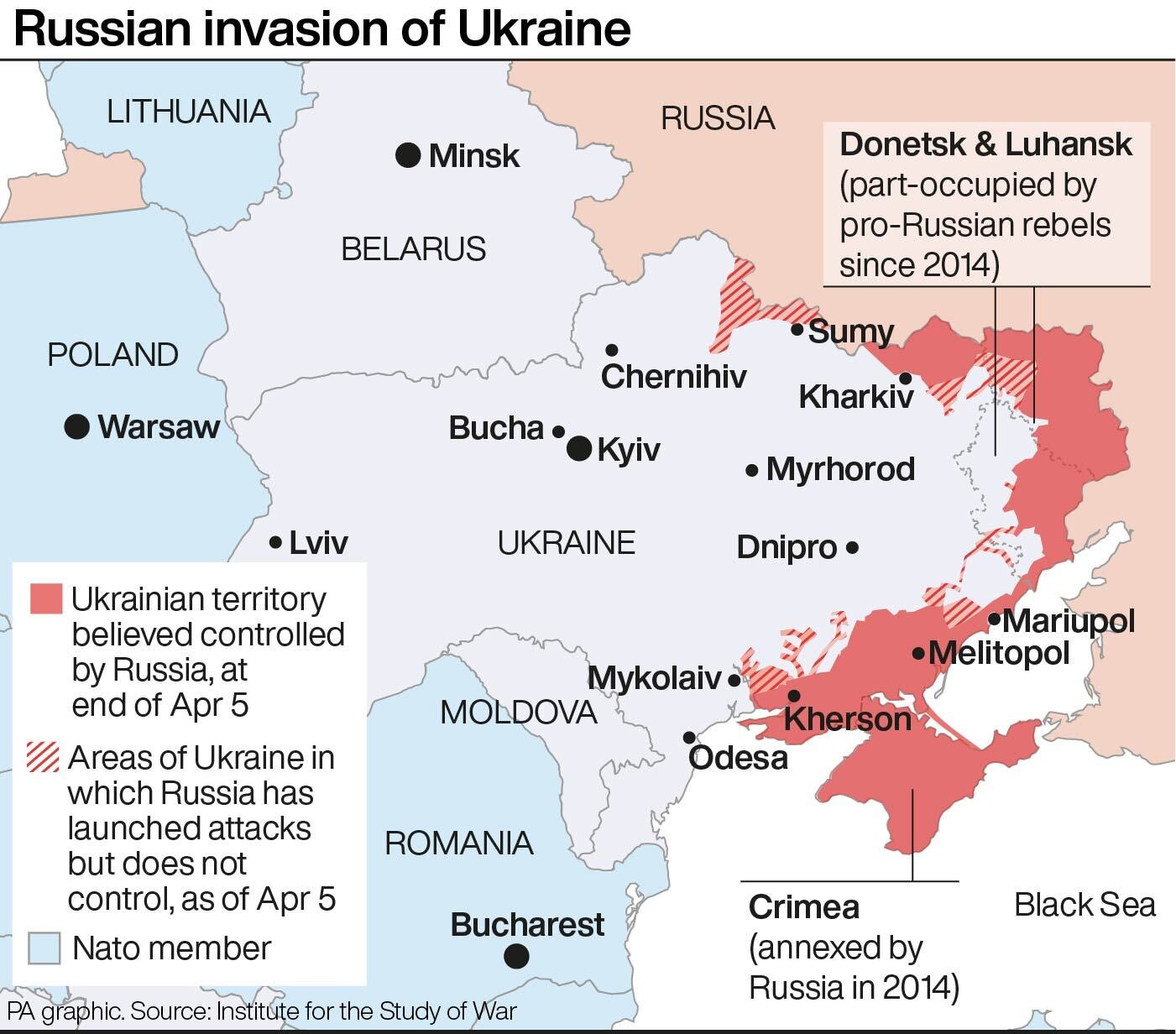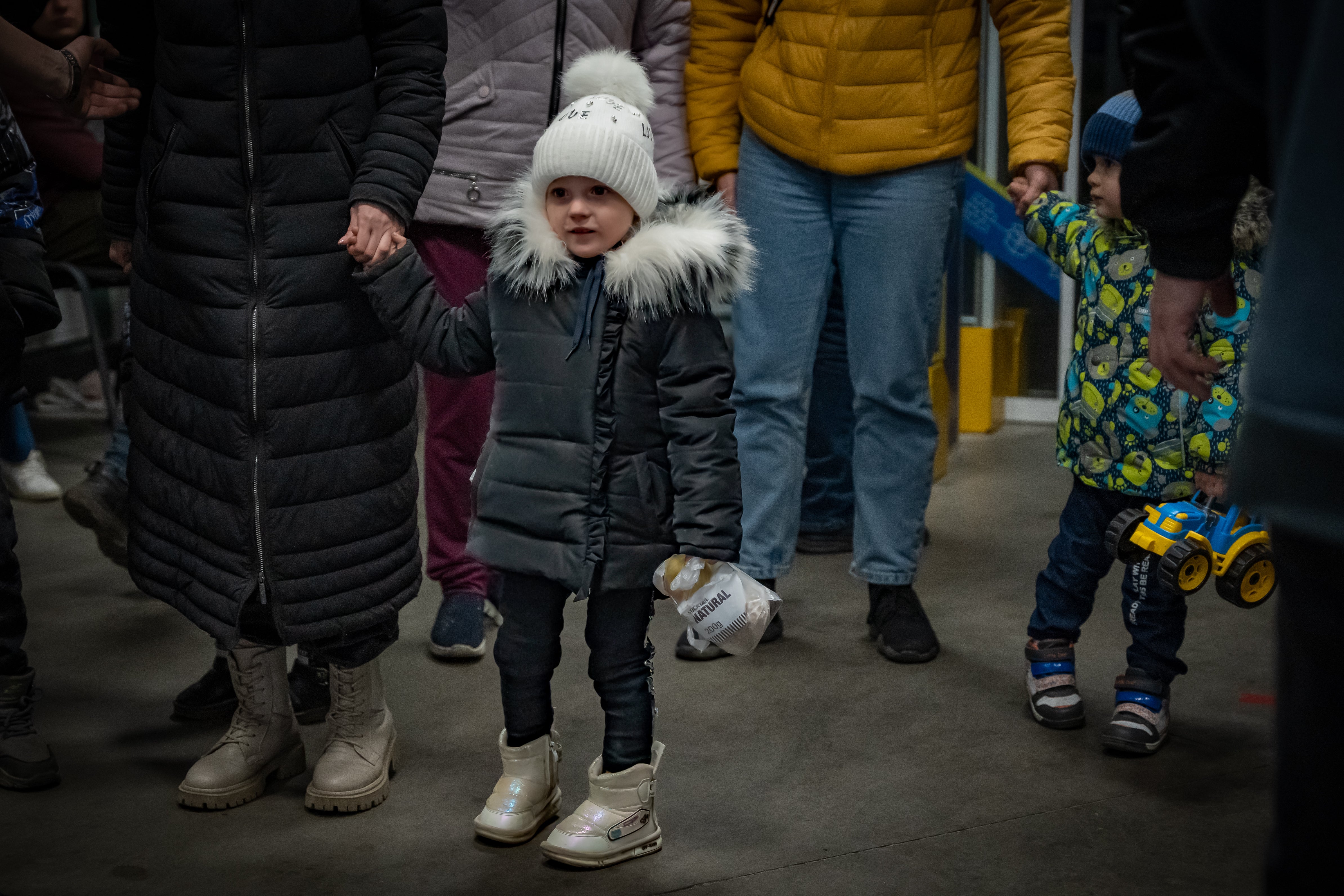A life or death journey: Meet the Ukrainian volunteers risking it all to rescue civilians from Mariupol
Ukraine’s citizens are driving through airstrikes, shelling and Russian-occupied territory to help friends, relatives and strangers escape the besieged and bombarded city, reports Bel Trew in Zaporizhzhia


The road to Mariupol is perhaps the most dangerous in the world.
But Elena and other brave volunteers risk their lives almost every day driving down it to rescue civilians trapped by Russia’s war.
The besieged coastal city is enduring the most ferocious bombardment of Vladimir Putin’s conflict in Ukraine.
Local officials say that 90 per cent of the city has been destroyed and as many as 5,000 people have been killed.
It is also in the stranglehold of a siege: over the last month there has been no electricity, water, heating, phone network or delivery of fuel, food and medical supplies. Swathes of the territory around the city are occupied by Russian forces.
Multiple attempts by the Red Cross to open an official humanitarian corridor to bring supplies in and to evacuate those who are trapped have failed.
And so the job of rescuing people has been largely left up to civilians who demonstrate bravery that almost beggars belief. They play a cat-and-mouse game with missiles to go back to fetch those left behind, on their own.
At least three of the most well-known volunteer rescuers have gone missing in their various efforts over the last few weeks, The Independent was told.

But this does not deter 49-year-old Elena. Having just arrived back in nearby Zaporizhzhia from her second trip to Mariupol, says she plans to turn around and go back again.
“It’s a miracle we got there and back alive, but I’m determined to go again,” says the part-time security guard, dismissing the dangers with a smile.
She speaks to The Independent shortly after arriving at a reception centre of Zaporizhzhia, some 200km north of Mariupol and the first port of call for those fleeing the siege and bombing.
“The situation in Mariupol is apocalyptic, people are forced to drink water from rivers. They have no connection with the outside world. Everything is being bombed.”
“But I remember the immense relief of arriving in Zaporizhzhia for the first time – I want everyone to feel that joy.”
The UN is currently investigating evidence of war crimes committed by Russian forces across Ukraine since Putin launched his invasion on 24 February. UN rights chief Michelle Bachelet has highlighted the plight of besieged Mariupol, saying that “people are living in sheer terror”.
Vadym Boichenko, Mariupol’s mayor, said this week that as many as 5,000 people have been killed in the city, a number The Independent was unable to verify. He said Russian forces have bombed hospitals, including one where 50 people burned to death.
British defence officials say 160,000 people remained trapped in the city, which had a pre-war population of 430,000. A humanitarian relief convoy accompanied by the Red Cross has been trying for days without success to get into the city.
These are forgotten people in a forgotten place, so we have to go
Ukraine’s deputy prime minister, Iryna Vereshchuk, said they hoped to evacuate as many as 10,000 people on Thursday but that residents will have to use their own vehicles to leave.
The pressure is on volunteers to help.
Every day in Zaporizhzhia, groups of civilians answer calls for help from relatives of families trapped in the worst-hit areas of the city. They coordinate single cars or convoys, known as columns, going back in.
Most mornings they gather to discuss the best strategy, to tie white rags to their cars and write “children” in Russian on paper signs in a desperate bid to avoid being shot or shelled.

“These are forgotten people in a forgotten place, so we have to go,” says Alyona, 27, as she prepares her battered box car for the perilous ride later in the day.
She fled Mariupol on 2 March, but was joining a volunteer convoy to get back into the city to pick up her grandparents and a group of disabled people trapped under the bombardment.
“There are pretty much no avenues for international organisations to get these people out,” she says. “No one but us can help them, so it is our responsibility.”
Her words echo Elena’s, who was also busy preparing her car to return to Mariupol. She explains how when she first left the city she accompanied a disabled woman who could not even move to her basement when the bombs rained down.
Their journey was already extremely dangerous, and they barely made it to the relative safety of Zaporizhzhia alive.
We are the only people on the planet who we can help, so it is our duty
Elena borrowed some money, bought a car and located a driver called Maksym on a volunteer group chat to help her to drive back and retrieve her husband. Along the way, they picked up a family of five she knew and shuttled them to the comparative calm northwest.
They had to drive through airstrikes, shelling and Russian-occupied territory to get out. Despite the dangers, she is going to go back in a few days to retrieve more friends and relatives.
“The shelling was relentless, but I know a disabled person and a pregnant woman who need help,” she said. “I must go.”
Maksym, 60, who volunteered to drive her, says he offered to help as he is too old to join the military and “wanted to do something useful”.
The rugged former soviet captain is a man of few words. But he recalls how the shelling rained down on them from “dawn until dusk”.

Some of these volunteers have made the perilous journey so many times they have obtained a kind of celebrity status among those desperately hunting for their lost loved ones. But it is incredibly dangerous work: three of the most well-known volunteers are now feared missing.
Two vanished almost immediately after last setting off a week ago. One – known only as Micha – managed to call to say he made it to the city, but never rang back.
Families who he helped rescue say he would take his car to Mariupol every other day, and in total had retrieved over 100 people.
“He is now missing, we don’t know what happened to him,” says Slava, whose entire family in Mariupol was rescued by a different volunteer.
“Micha is the bravest man I know.”
Slava said his wife and children were rescued by a man called Sergei who also regularly makes the highly dangerous trip.
“He drove my wife, children and five others in his car, and at the same time guided 50 others on foot who walked to safety behind him,” he adds.
“Their work is amazing.”

Elena and Maksym, meanwhile, are planning their route back in, and what supplies they should take. Last time they brought nappies but intend to try to deliver more aid if possible.
Maksym says he is not fazed by the danger as his children are now adults and “so [he has] nothing to lose.”
However Elena’s children, who are scattered across Europe, are apparently horrified by what she is doing, she adds.
“But what else can we do?” she asks with a chuckle.
“We are the only people on the planet who we can help, and so it is our duty.”
*All names have been changed to protect people’s identities
The Independent has a proud history of campaigning for the rights of the most vulnerable, and we first ran our Refugees Welcome campaign during the war in Syria in 2015. Now, as we renew our campaign and launch this petition in the wake of the unfolding Ukrainian crisis, we are calling on the government to go further and faster to ensure help is delivered. To find out more about our Refugees Welcome campaign, click here. To sign the petition click here. If you would like to donate then please click here for our GoFundMe page.






Join our commenting forum
Join thought-provoking conversations, follow other Independent readers and see their replies
Comments